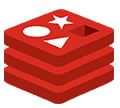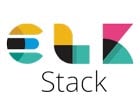In this tutorial, we are going to build and install Redis on our CentOS 7 Cloud VPS from source.

In this tutorial, we are going to build and install Redis on our CentOS 7 Cloud VPS from source.

In this article, we will show you how to install MariaDB on a Debian 9 Cloud VPS.

In this guide, we will show you how to install Boonex Dolphin 7 on an Ubuntu Cloud VPS.
Boonex Dolphin is a popular social networking platform and web application that allows you to create easy-to-use community and social media oriented websites. It’s open-source, and thanks to its design and customization-oriented nature, you can make your site unique to suit your ideas. Let’s get started with the installation.
In this tutorial, we will show you how to install Yarn on an Ubuntu 16.04 Cloud VPS, as well as go over some of the basics with using Yarn.

As you can see, the interesting feature is the offline installation. Once you have installed a package, it will be cached and we can create another project from scratch without being connected to the internet, which in turn will save our bandwidth usage.
Usually, a project requires some dependencies and every time we install them to start a project, the “npm install” command would consume your bandwidth. When using Yarn, the download is done just once. Let’s begin installing Yarn.
In this tutorial, we will guide you through the process of installing SQLite on an Ubuntu 16.04 Cloud VPS, which is fast, easy, and can be done in less than 5 minutes.

In this article, we will show you two different methods on how to install MariaDB on your Ubuntu 18.04 Cloud VPS.

In the first installation method, we will use the official Ubuntu repository, while the second installation method we will install the latest version of MariaDB from the official MariaDB repositories.
In this tutorial we are going to install the self-hosted version of Matomo on an Ubuntu 18.04 Cloud VPS with the Apache web server, the MySQL database server, and PHP version 7.2.
Matomo (formerly known as Piwik) is a free and open-source real-time web analytics platform, similar to Google’s own Analytics platform. Matomo provides its users with reports about their websites such as visitors, search engine results, languages, keywords, and much more. The install process is fairly straightforward, so let’s get started.
In this tutorial, we will cover the steps needed for installing ELK Stack on Ubuntu 18.04.

In this post, we will show you how to install YetiForce CRM on a Debian 9 VPS with MariaDB, PHP 7.2 and Apache.

In this tutorial, we will show you how to Install Wagtail on Ubuntu 18.04.
